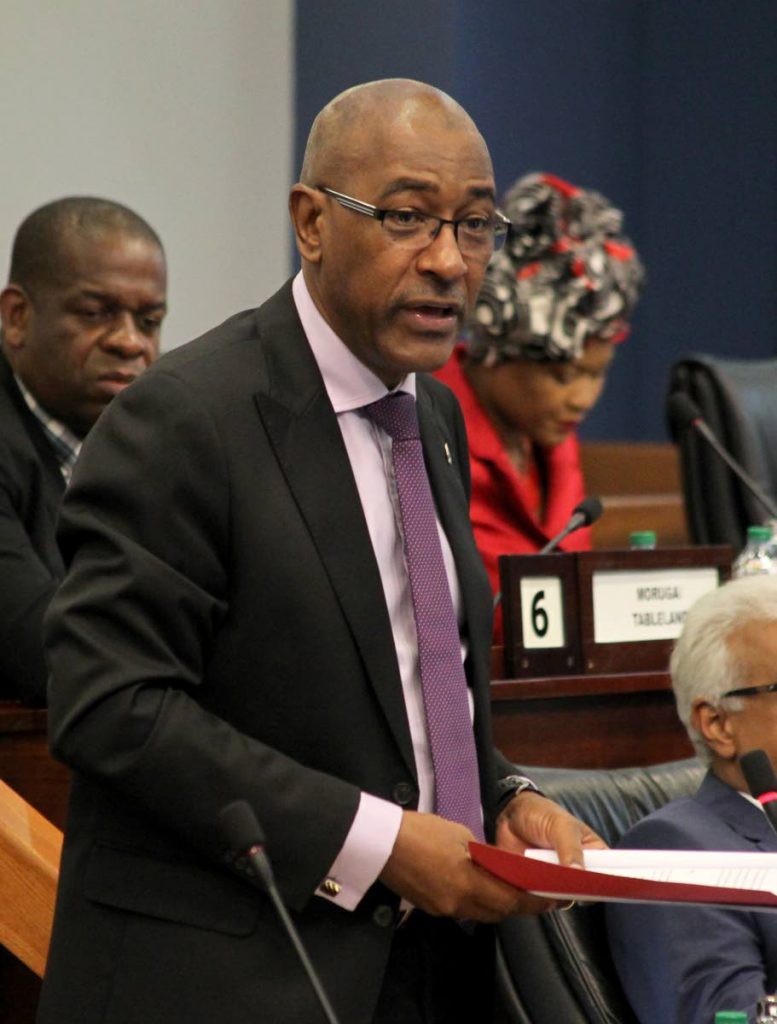Le Hunte: No quick fix for water woes

There is no quick fix for the water woes facing certain parts of the country and citizens should try to keep conservation methods firmly in place even during the rainy season, according to Minister of Public Utilities Robert Le Hunte. He is still hopeful however that water production in the country will be significantly increased in the near future.
During a phone interview with Newsday Le Hunte said that refurbishing work had already been completed on 38 wells and a further 20 wells which had stopped working had also been repaired. This work will help alleviate some of the stress that citizens have faced during this year's harsh dry season. Residents of south Trinidad have experienced long periods with little to no water over the last month.
Le Hunte said, "The objective is to increase water production in TT to about 252 million gallons of water a day but, as I have always said, the problem of water is a combination. It's not just about water production. It's about five moving parts together. It's about water production, it's about storage, it's about man management, fixing the infrastructure via the leaks and it's about interconnectivity issues."
Currently, by his estimates, TT produces about 173 million gallons per capita. The wells are crucial if more water is to be produced. Twenty more have to be rehabilitated and 17 new ones are also expected to be functional soon. He wants to increase ground water in TT up to about 60 million gallons a day. To create the new wells a well-development programme will be launched in areas where it is most needed.
He said, "We will be looking at wells in the area of Santa Cruz, Chatam, Granville, Arouca and a lot in Tobago like Calder Hall , Carnbee, Scarborough, Signal Hill, Roxborough and St Mary's Hill. Those are really the areas that you are looking at drilling new wells."
It is hoped that when all the wells are fully functional there would be less dependence on the nation's reservoirs.
Le Hunte admitted that part of the problem was caused by poor distribution channels to various points throughout the country. That is especially a cause for concern for Tobago. He said the only way that could be corrected was to upgrade booster stations (a pump station designed to boost the pressure of water within a long pipeline).
Works have already begun on some of the booster stations and has been completed on the Savonetta station, Teak Village station and South Oroupouche station. At least 242 kilometres of pipes have been identified for immediate replacement. However because of budget constraints about 30km will be serviced which is enough to also help boost water delivery.
Le Hunte also hopes that the Water and Sewerage Authority (WASA) will help to decrease the leaks from 1,000 to about 500.
He said, though the focus in the long term was to help prevent water shortage from another harsh dry season, desalination plants are not a very viable option.
"Desalinated water is very expensive water. It is the most expensive water that you could get. Therefore, if you are trying to do more with less, you have to maximise the production of ground water rather than doing desalination."
He also said there were no plans for a desalination plant in Moruga.
"I am not aware of any desalination plant open in Moruga but there have been conversations about desalination plants in Tobago and west Trinidad. The problem with desalination plants is that its is a very expensive way of dealing with your water problems.
"All of these measures would have no effect if people do not continue to conserve as even in the rainy season there can be trouble for water."
Le Hunte said the volume of water coming through the streams into the dams was sometimes trapped because of illegal mining and other environmental factors. That causes a reduction in water production as well.
"That campaign about every drop counts. That should become part of our life. As a country our consumption of water is way above a lot of other parts of the world. As a country we need to reduce the amount we use.
"Conservation remains a top priority at this time and going into the rainy season."

Comments
"Le Hunte: No quick fix for water woes"